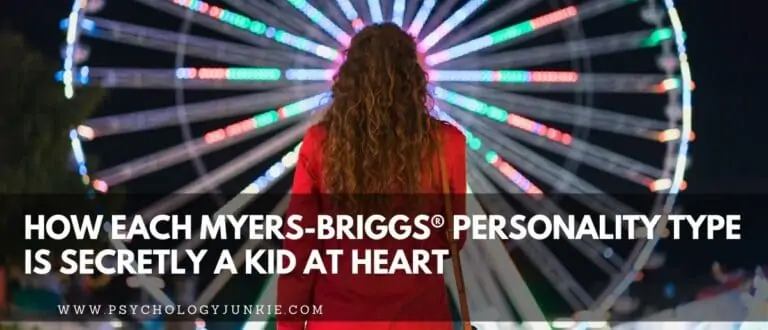How to Cope with Loneliness, Based On Your Personality Type
I’ve always been someone who struggled with loneliness. This might sound crazy to admit since I live in a family of seven people, but it’s nonetheless true. I’ve been thinking about how most loneliness comes from not just feeling isolated, but from feeling misunderstood. Maybe it’s hard for us to be open about ourselves and get past the “small talk” phase in a relationship. Maybe we feel misjudged or like our values don’t matter to anyone. Maybe people think our blunt, straightforward way of speaking is unkind when really we’re just trying to help. Or maybe we’re emotional and people misjudge us for feeling things so strongly.
I started thinking about the different ways each personality type can be misunderstood and in turn feel lonely and struggle with that. I also tried to think up some unique “loneliness hacks” for each type. I hope this is helpful, and please let me know if you have any ideas or thoughts in the comments!

Not sure what your personality type is? Take our new personality questionnaire here. Or you can take the official MBTI® here.
Table of contents
- Why You’re Lonely (Based on Your Myers-Briggs® Personality Type)
- The ISTJ and Loneliness
- The ISFJ and Loneliness
- The ESTJ and Loneliness
- The ESFJ and Loneliness
- The ISTP and Loneliness
- The ISFP and Loneliness
- The ESTP and Loneliness
- The ESFP and Loneliness
- The INTJ and Loneliness
- The INFJ and Loneliness
- The ENTJ and Loneliness
- The ENFJ and Loneliness
- The INTP and Loneliness
- The INFP and Loneliness
- The ENTP and Loneliness
- The ENFP and Loneliness
Estimated reading time: 24 minutes
Why You’re Lonely (Based on Your Myers-Briggs® Personality Type)
The ISTJ and Loneliness
ISTJs enjoy being alone and having their privacy and freedom, but at the same time, they usually want at least one or two close, loyal friendships.ISTJs who feel lonely often struggle with finding an easy, natural friendship with someone who understands them and shares the same values. ISTJs look for loyalty and honesty in their relationships and can feel isolated when friends shirk plans or don’t follow through on their word. They are also very private individuals and hate feeling like other people are talking about them or sharing stories from their personal life. Friends who are too chatty and share things told in confidence without thinking will quickly lose the ISTJs trust and respect.
Loneliness Hacks for ISTJs:
– Think of one trusted friend or family member that you can talk to or invite over.
– Don’t be afraid to step out of your comfort zone and ask someone who seems interesting to hang out. Maybe invite them over to play a game or watch a movie so that you have a central focus to gather around.
– Get involved with your community and find a church or organization to take part in.
– Find a volunteer opportunity where you can meet like-minded individuals with the same goals and interests.
– Spend time with animals. Studies have shown that interaction with animals reduces stress!
– Do you enjoy reading? Find a book club that meets in your area.
– Don’t worry about marking off a mental checklist of requirements when you meet people. As long as they seem trustworthy and kind, take the chance to get to know them and be open to their conversation.
Related: Getting to Know the ISTJ
The ISFJ and Loneliness
ISFJs are very generous and devoted individuals. They care tremendously for their loved ones and try to remember special details about them; what they like, dislike, what makes them happy or sad. At the same time, ISFJs tend to feel lonely when they are taken advantage of or their efforts aren’t noticed for long periods of time. A simple “thank you” or a kind gesture in return would mean a lot to them, but many people take advantage of their generosity and forget to acknowledge it. They also sometimes worry that their friends only like them when they’re kind and pleasant and generous. They may wonder if the people around them care about them for who they really are and not just what they do for them. ISFJs are also very responsible people and they may tire of always being the one to take care of things, make sure people’s needs are met and emotions are tended to. They may often wish that they had someone who cared for them the way they do for others.
Loneliness Hacks for ISFJs:
– Listen or play music and sing along.
– Take a walk outside and take photos of all the birds, squirrels, and flowers you pass.
– Think of one trusted friend or family member that you can call to talk to or invite over.
– Read a book with nuanced, in-depth characters.
– Find a volunteer opportunity where you can meet compassionate, like-minded individuals.
– Write out your thoughts and feelings in a journal.
– Take the time alone to accomplish some self-care.
– Spend time with animals.
– Stand up for your own needs and desires. Don’t be afraid to share who you really are and ask for help or encouragement.
– Snuggle babies! Many NICUs across the country are looking for people to hold, cuddle, or feed premature babies or babies born with addictions.
Related: The Childhood Struggles of ISFJs
The ESTJ and Loneliness
ESTJs are hard workers who try to show their concern for others by performing acts of service or giving advice and logical solutions. They tend to feel lonely when their efforts to show love are rebuffed or disregarded. Because ESTJs tend to see where situations could be improved and tend to give a lot of advice, other types can feel that they are being bossy or controlling. They may get angry at the ESTJs efforts to help instead of seeing their good motives. This can make ESTJs feel lonely and misunderstood. They can also feel lonely if they don’t have loyal friends. To the ESTJ, loyalty and honesty are extremely important and when friends don’t show up when they said they would, or when they talk badly about them behind their back they may feel very hurt or frustrated as a result.
Loneliness Hacks for ESTJs:
– Find a community group or religious organization to get involved with.
– Help out in a soup kitchen or find a volunteer opportunity where you can connect with other people who have a shared goal.
– Join a local sports team for adults!
– Plan out a family gathering or a celebration to invite people to. Enjoy figuring out what foods to make, what music to play, or what the theme will be.
– Read a book or listen to a podcast that sounds interesting. Send the author an email or letter letting them know what you think!
– Find an online community of like-minded individuals.
– Join a meetup that revolves around a shared interest.
– Spend time with animals or children!
Related: Understand the Cognitive Functions of the ESTJ
The ESFJ and Loneliness
ESFJs are usually very friendly, devoted individuals who like to be surrounded by their friends and community members. They generally dislike being alone for long periods of time and will get lonely pretty quickly if they don’t have close friends to talk to or share their lives with. ESFJs can also feel lonely and misunderstood when their friendliness and exuberance is misconstrued as being “fake”. EXFJs tend to all struggle with this dilemma. They tend to look at what they share in common with other people and try to find common ground. They also tend to be very expressive and “bubbly”. Other types, who rely more on introverted feeling or thinking, may see this gregariousness as a lack of individuality or authenticity. ESFJs can feel very saddened by their intentions being questioned in this way and can feel very isolated and frustrated as a result.
Loneliness Hacks for ESFJs:
– If you have at least one trusted friend, invite them out for coffee and conversation.
– Write a letter to someone you care about.
– Find a volunteer opportunity and meet like-minded, goal-oriented individuals!
– Volunteer at a nursing home and read books to the elderly or disabled.
– Spend time with animals!
– Read a book filled with fascinating characters.
– Sing and listen to music you relate to.
– Take a walk or a jog outside and refresh your senses.
– Take time for yourself; journal, draw, dance, play a musical instrument, take pictures!
– Hold babies! Many NICUs across the country are looking for people to hold, cuddle, or feed premature babies or babies born with addictions.
The ISTP and Loneliness
ISTPs are extremely independent, resourceful, and analytical individuals. As a whole, they tend to do better alone than many types. They usually thrive on having their own space and freedom. However, many ISTPs get lonely when they’re bored and they don’t have anyone who shares the same interests to talk to. They usually desire one close friend who enjoys similar activities and who can “get” them and hang out from time to time without a lot of pressure. ISTPs are extremely independent, but they still desire understanding and connection like anyone else does. Being bored and unable to find a passion or interest is often when their loneliness begins to set in. They like to know that even if they are alone that there are people out there who care for them that they can talk to or spend time with if the need arises.
Loneliness Hacks for ISTPs:
– Join a volunteer organization and meet other people through a shared goal or passion.
– Read a book filled with fascinating characters and exciting plot twists.
– Find a new hobby or interest.
– Enjoy playing video games? Connect with other gamers online.
– Take a walk or a jog in nature to refresh your mind and body.
– Find an ISTP group on Facebook and enjoy talking with like-minded individuals.
– Find a way to help other people out. Mow the neighbor’s lawn or help out in an animal shelter.
– Think of one trusted friend or family member that you could invite over for an activity or conversation.
Related: Understanding ISTP Thinking
The ISFP and Loneliness
ISFPs are very compassionate and private individuals. They lead with introverted a feeling, a deeply value-driven, emotionally rich process that is kept almost entirely internalized. It isn’t until they find a very trusted friend that they feel they can share their deep feelings and values. As a result, ISFPs who don’t have a true “kindred spirit” in their life tend to feel isolated because they aren’t able to share their true selves with anyone and may feel they have to pretend everything’s okay and settle for casual acquaintances over deep friendships. They would usually rather have one or two very close, trusted friends over a large group of “halfway” friends. ISFPs can also feel very lonely when their emotions show and they are judged for it. They are very moved by sadness and suffering and may show it by crying (even though they’d rather not). When people belittle their reactions or mock them, it only makes them feel worse. It’s important for them to have at least one confidante or a trusted friend or family member who they can turn to during these times.
Loneliness Hacks for ISFPs:
– Spend time with animals!
– Watch a movie or read a book.
– Find one trusted friend or family member that you can talk to or invite over.
– Get creative. Paint or draw while listening to music!
– Sing or play music.
– Find a volunteer opportunity that will put you in touch with compassionate, like-minded individuals.
– Take a walk in nature to improve your mood.
– Pamper yourself with a night in; soak in the tub or find other self-care activities.
– Use your nurturing side to hold and comfort babies. Many NICUs across the country are looking for people to hold, cuddle, or feed premature babies or babies born with addictions.
Related: 10 Surprising Truths About ISFPs
The ESTP and Loneliness
ESTPs tend to be outgoing and sociable people, so being alone for a very extended period of time can make them feel depressed and listless. They can get lonely if their friends are always finding excuses to stay home and not hang out or interact, and they can also feel lonely if they don’t have one good friend who really understands them. ESTPs are often known as “the life of the party” and while they enjoy having a good time, and showing others a good time, they can also question how many of their friends truly care about them for who they are and not just “the fun times”. They worry about having fair-weather friends and no one who is going to be there when times are hard. Sometimes they get tired of planning parties and gatherings and want their friends to take the lead and invite them over. Even though ESTPs may seem carefree and optimistic to the outside world, they have a deeper need for close, authentic companionship than many people realize.
Loneliness Hacks for ESTPs:
– Find a meetup that revolves around a shared interest or passion.
– Can you think of one or two trusted friends or family members? Give them a call and ask them to come over.
– Go to the movies, an arcade, a concert, or plan a recreational activity.
– Challenge yourself by going rock climbing, skydiving, or training for a triathlon.
– Join a volunteer group like the volunteer fire department or another effort that will put you in touch with other people sharing a common goal.
– Do you like gaming? Find an online gaming community and compete with other players.
– Read a book filled with fascinating characters and plot twists.
The ESFP and Loneliness
ESFPs are usually outgoing, friendly, and optimistic individuals. They tend to get lonely when they have nobody to really connect with or talk to on a meaningful level. Because they are usually enthusiastic, humorous, and fun-loving, they tend to draw in a variety of friends who enjoy their charisma and charm. This can be both a blessing and a curse for the ESFP, as they simultaneously enjoy the friendships, but also feel worried that their friends are only there to be entertained and nothing more. Some people take advantage of the ESFPs good humor and jovial personality and then run away when times get hard and the ESFP needs someone to be there for them. This is when the ESFP tends to feel the loneliest. It’s important that they have some good friends who really care for them during the ups and downs and who aren’t just there for the good times and the smiles and laughter.
Loneliness Hacks for ESFPs:
– Find a trusted friend or family member who you can call and talk to or invite over.
– Spend time with animals!
– Find a volunteer opportunity and get to know other people who are passionate about a cause you believe in!
– Bring cookies to a nursing home or spend time talking to the elderly people there.
– Find a random acts of kindness lists and try to complete them with a friend.
– Go somewhere new and different. Explore another culture. Maybe your current environment isn’t as suited for you as another one would be!
– Find a meetup that revolves around a shared interest.
– Sing and dance and play music!
– Find an interesting book series to read.
The INTJ and Loneliness
INTJs tend to thrive in solitude and enjoy peace and quiet to immerse themselves in their ideas, books, and projects. At the same time, they usually desire at least one or two close, trusted friends who they know they can count on no matter what. They want to have deep, meaningful conversations and debate existing theories and pull them apart. They want someone who is interested in more than small talk or day-to-day routines. Many INTJs have mentioned to me that they look more for a “soulmate” than a variety of casual friendships. They tend to be content with just one person who understands them and who they can dedicate their time to. Because INTJs make up only 1.5% of the population, it can be difficult for them to find other people who understand their way of thinking. If they can find just one they are usually content at this point. INTJs can also feel misunderstood and frustrated when they give logical advice to their friends, and instead of that advice being taken or at least kindly ignored, it ends up offending the person they’re giving it to. They can get disillusioned with friendships where they have to refrain from helping in the way that is most natural to them or when their efforts to help are rebuffed, ridiculed, or misconstrued.
Loneliness Hacks for INTJs:
– Do you have any friends with shared interests? Text them and see if they’d like to come over. Bring up your interests and ask them about their own. Try to veer the conversation away from small talk.
– Read a book or write your own book!
– Find an online community of like-minded individuals (an INTJ group, a debate community, a group of philosophy aficionados, etc,.).
– Find a volunteer opportunity you care about. Working with people who want to make a difference in the world can be extremely inspiring and life-changing.
– Play music or try to write your own song.
– Take a walk to refresh your mind and body.
– Get a pet!
– Take a walk through an art museum and be open to discussion with people there.
– Don’t worry about marking off a mental checklist of requirements when you meet people. As long as they seem trustworthy and kind, take the chance to get to know them and be open to their personality even it’s very different from your own. They might surprise you in a good way!
Related: The Childhood Struggles of INTJs
The INFJ and Loneliness
INFJs are known for their complexity, vision, and empathy. They enjoy alone time and generally don’t want a lot of time socializing, especially in crowded places. At the same time, they greatly desire one or several close friends who they can connect with on a very deep level. INFJs aren’t interested in small talk or casual acquaintances, and so they can feel lonely when this is all they have for companionship. They often find getting past the acquaintance stage to be difficult and hope for more meaningful connections. They tend to feel the most isolated when they try to open up about their insights, feelings, or dreams and are met with confusion or all-out mockery. If deep conversation about philosophy, psychology, and the meaning of life were considered normal, INFJs would have an abundance of friends. Unfortunately in a world that is more concerned with celebrity gossip and day-to-day occurrences, INFJs often struggle with forming deep, lasting bonds.
Loneliness Hacks for INFJs:
– Read a book filled with fascinating, in-depth characters.
– If you have at least one trusted friend or family member, call them up (or text them) and ask them to hang out.
– Spend time with animals!
– Sing or play music.
– Find a volunteer opportunity and connect with other compassionate individuals who want to make a difference!
– Journal or publish a blog.
– Find an online community of like-minded individuals (like an INFJ group, an introvert group, a writers group, etc,.)
– Be creative with art. Turn on some music and paint or draw.
– Talk to a counselor who can help you manage feelings of isolation.
Want a comprehensive guide to the INFJ personality type? Check out my eBook, The INFJ – Understanding the Mystic.
Related: The Four Reasons INFJs Struggle with Loneliness
The ENTJ and Loneliness
ENTJs tend to be energetic, outgoing individuals who like to know a variety of diverse, interesting people. They are more action-oriented than talk-oriented so they may come across as less chatty and social than other extroverts. At the same time, they enjoy friendships and camaraderie and will feel lonely if they don’t have anyone to share their plans, ideas, and prospects with. ENTJs lead with a function called extraverted thinking (Te). This function gives them an ability to easily see flaws that need correcting and form efficient plans and courses of action. They tend to tell people how things should be done and try to help them by pointing out areas that could easily be improved. Unfortunately many people see this “helpfulness” as being bossy or condescending and will bristle at it instead of accepting it. This can make the ENTJ feel misunderstood and frustrated. ENTJs are also extremely ambitious and driven and can feel isolated when they are surrounded by people who don’t have the same drive and determination that they do. They can feel flustered when they try to get into deep, fascinating topics of conversation and their friends just want to talk about football or the weather or a favorite TV show. Small talk is completely draining for ENTJs.
Loneliness Hacks for ENTJs:
– Join a mastermind group for people who share the same ambitions and goals you have.
– Get involved in a networking opportunity that revolves around a shared interest.
– Have any trusted friends? Invite them over and challenge them with some thought-provoking questions. See what happens!
– Listen to podcasts or read books that you find fascinating. Write to the author or speaker and let them know your thoughts!
– Exercise to refresh your mind and body.
– Help out in a real, tangible way. Rake the yard for an elderly neighbor or help out in a homeless shelter.
The ENFJ and Loneliness
ENFJs are extremely generous, compassionate individuals. They are known for their empathy and friendliness and as such tend to have a wide variety of friends. They can feel lonely if they have to spend much time in solitude or if they are in a season of life where they are struggling to find friendships that are deep and meaningful. ENFJs can be so giving and empathetic to others yet feel unsure about how to share their true selves at the same time. They may keep part of themselves hidden so that they can meet other people’s needs. For example, my sister (an ENFJ) tends to make conversation revolve around the person she’s talking to. She will say “enough about me, let’s talk about you!” a lot. She feels it’s almost selfish to discuss her own feelings and troubles. I’ve come across many ENFJs who feel this same way and who struggle with sharing their own deeper fears, worries, and dreams. ENFJs can feel isolated and alone when they give so much but their friends don’t take the time to truly listen to them and ask them how they are doing. They can also feel misunderstood when their friendliness and enthusiastic nature is deemed “fake” or “phony” by other types who don’t understand it.
Loneliness Hacks for ENFJs:
– If you have at least one trusted friend, invite them out for coffee and conversation.
– Write a letter to someone you care about.
– Find a volunteer opportunity and meet like-minded compassionate individuals!
– Volunteer at a nursing home and read books or play music for the elderly or disabled.
– Spend time with animals!
– Read a book filled with fascinating characters.
– Sing and listen to music you relate to.
– Take a walk or a jog outside and refresh your senses.
– Take time for yourself; journal, draw, dance, play a musical instrument, take pictures!
– Don’t be afraid to open up about who you really are. It’s okay to talk about yourself!
The INTP and Loneliness
INTPs tend to thrive in a certain amount of solitude. They enjoy tinkering with ideas and theories and experimenting with a variety of projects from the comfort of home. At the same time, like all people, they occasionally crave deep friendship and trust with another individual. They may go through long periods of time alone absorbed in their own thoughts and activities and suddenly feel an increasing need for connection. If they don’t have any friends or family members to turn to they can become listless and bored. Some friends won’t understand the INTPs bouts of isolation and may ditch them when they aren’t showing up regularly for contact. It’s important for people to realize that just because INTPs aren’t always around, that doesn’t mean they don’t care. They can lose track of time and become so absorbed in their activities and thoughts that for a time they forget about outside relationships. When they lose friendships as a result of this it can make them feel very alone and frustrated with themselves. They can also feel lonely when they aren’t understood by other people. INTPs are a rare type and it can be difficult for other people to understand their highly logical yet deeply imaginative personality.
Loneliness Hacks for INTPs:
– Find a meetup that revolves around an interest you have and find other like-minded friends.
– Do you have any friends or family members you trust? Send them a text and ask if they’d like to spend time together!
– Play video games? Find a group of gamers you can connect with in an online capacity!
– Find a book series with fascinating characters you can connect with.
– Join an INTP community online and discuss interesting ideas and theories.
– Find a project or experiment to work on and distract yourself with.
– Go to the movies or invite a friend over to watch a favorite movie.
– Visit an art gallery – maybe you’ll find someone who’s drawn to the same things you are!
– Try to set reminders to text your friends and ask them how they’re doing so they don’t feel neglected.
The INFP and Loneliness
INFPs are imaginative, compassionate, and creative individuals. They long for deep connections with people who aren’t afraid to talk about creative possibilities, unusual ideas, or inspiring hopes and dreams. They crave deep conversation and loyalty and tend to feel frustrated when they are stuck in the “acquaintance” phase of a relationship. INFPs can be very private individuals and may have a hard time opening up about their own feelings and dreams. They may also feel that it’s difficult to find people who share their values or their passion for the marginalized and suffering. INFPs are sensitive souls and will quickly lose interest in relationships where their values are criticized or mocked or where gossiping and sarcastic jabs are common. They don’t tolerate judgmental behavior well and they especially don’t tolerate dishonesty. They tend to feel the most lonely when they are misunderstood, belittled, or surrounded by people who are focused more on day-to-day concerns than the deeper, underlying issues of humanity.
Loneliness Hacks for INFPs:
– Spend time with furry, four-legged friends!
– Read a book filled with fascinating, in-depth characters
– Find a volunteer opportunity and get to know other people passionate about a cause you believe in!
– Join a book club!
– Join an INFP group online and get into a conversation with other like-minded individuals
– Take a walk in nature to refresh your mind and body
– Is there anyone you can trust? Maybe send them an email, text, or letter and ask them to hang out!
– Take the plunge and share your unique perspectives and ideas with an acquaintance. Many people are just waiting for the other person to take that first step before a true friendship can form.
– See a counselor to get help managing loneliness and feelings of isolation.
The ENTP and Loneliness
ENTPs are creative, innovative, and intensely logical individuals. They enjoy intellectual sparring with just about anyone and are fascinated by deep, theoretical discussions and possibilities. They tend to be humorous, energetic, and easy to get along with. At the same time, they can easily lose friends because many of them have a penchant for arguing and debate. This can quickly turn off some types and cause friendships to fizzle out over time. This can be frustrating for ENTPs as usually, their argumentative-nature isn’t mean-spirited but just a combination of their desire for truth (Ti) and simultaneous desire to see multiple perspectives (Ne). They can feel lonely if they are surrounded by people but have no one with whom they can share deep, fascinating ideas. They tend to have a natural charm and easy sociability that draws people in, but getting past the “acquaintance” phase of a friendship can be a struggle. They also may be irritated by people who focus extensively on day-to-day concerns without respect for the big picture, or people who value feelings over logic to an extreme degree.
Loneliness Hacks for ENTPs:
– Join an online debate community like debate.org where you can argue philosophy, politics, and religion without shame.
– Try going somewhere you’ve never been and talking to people from different cultures. Perhaps your current environment isn’t conducive to the friendships you need.
– Get outside and exercise to refresh your mind and body.
– Have a friend or family member you can trust? Invite them over for a game or coffee or just talk on the phone.
– Find a meetup group or book club that revolves around one of your interests.
– Find a volunteer opportunity that coincides with a passion of yours. This is a great way to be inspired and find like-minded friends.
The ENFP and Loneliness
ENFPs are inspiring and compelling personalities who draw people in with their enthusiasm and friendliness. While ENFPs crave companionship and connection. they also enjoy regular alone time because this gives them a chance to explore their imagination and values. ENFPs are often called the most “introverted extroverts” and that’s because while they greatly value friendship they also need a good dose of alone time to process their feelings and relax. ENFPs tend to feel lonely when they can’t find deep, meaningful friendships. They want to discuss the meaning of life, exciting future possibilities, and new theories and ideas. They get bored with small talk and surface-level friendships. They also can feel lonely when they are continually counted on to be the entertaining/happy friend. It’s far too easy for “fair-weather friends” to accumulate and then dissipates when the ENFP is having a hard time or needs emotional support from others.
Loneliness Hacks for ENFPs:
– Read a book filled with fascinating, well-developed characters
– Spend time with animals
– Take a walk to refresh your mind and body
– Is there anyone you can trust to talk to? Give them a call and see if they’re willing to come over or talk.
– Help out in a volunteer capacity. Doing meaningful work alongside other compassionate people is a great way to cure loneliness.
– Go somewhere new and different and talk to people from very different walks of life.
– Stay away from fair-weather friends who are only there during the good times.
– Do you care about babies? Many NICUs across the country are looking for people to hold, cuddle, or feed premature babies or babies born with addictions.
What Do You Think?
What makes you feel lonely? What helps you to recover from loneliness? Let us know in the comments!
Find out more about your personality type in our eBook, Discovering You: Unlocking the Power of Personality Type.

Other Articles You Might Enjoy:
Self-Care for Each Myers-Briggs® Personality Type
How Each Myers-Briggs® Type Reacts to Stress (and How to Help!)
What Each Myers-Briggs® Type Needs in a Relationship









Oh my goodness. Your whole website has helped me immensely in the 1 hour that I’ve here. I feel like I’ve gone down a rabbit hole, into a psychological wonderland of knowledge. My name is Abigail and I am an INFJ myself. Nice to meet you!
Nice to meet you too! So glad you’re enjoying the site and finding helpful info! 🙂
Spot on as usual. I was just thinking recently exactly what you said about INTJs and advice. So many see the problem in the one dimension & I try to help people see there is a 360 degree view to consider. So many don’t want the realist approach, they just want empathy which is hard for me to remember to offer. As for me, the best empathy is: let’s get this thing fixed so it doesn’t happen again! Let’s brainstorm ideas rather than just discuss problems. And so it goes….
As a INFJ experiencing loneliness right now, I’m so thankful that you handed since decent tips of facing it. And I’m a bit surprised that how you can describe all 16 kinds of loneliness? That’s amazing work!
ENFJ here: for the most part many postings are pretty spot on. This one, however, I feel focuses on a younger ENFJ. I feel like as they go through more and develop their traits further, they learn to share more. The downfall is they can easily be caught in a Fe-Ti loop. Once that happens they will talk about themselves at length. Sometimes it’s just because they really want to make sure others understand what they are trying to explain (we abhor misunderstanding without a chance for correction and judgment). Other times it is because they are stressed and need to put those feelings outside which leads to analyzing them to process them, but can easily get caught in over analyzing and revisiting to dwell on it, hoping for a solution. Many see this as gossip or selfishness, which is super hurtful to an ENFJ. So basically it feels like there can be no win. We hate loneliness, but if we don’t talk about ourselves people accuse us of being shallow or lacking depth, but if we do talk, we are accused of selfishness and malice (considering our main goal is harmony, malice is the last thing we want). Both of which eventually lead to not having genuine, close friends or they leave. We live in a superficial society, so it is hard to find people who want that kind of depth. Just thought I’d share that it isn’t always about “conversation martyrdom” for us. 🙂 That, and all those motivational memes about living alone the rest of your life is better than with the “wrong” person is not true for an ENFJ. Living without someone close that they can trust is sheer agony. Ti takes over and tortures us without having a distraction and someone we can care about. I hope that helps. I realize as an INFJ, you likely know a lot of this, but may have just not included it.
Everything spots on for INFP (at least for me!) Probably can add one more for INFP is music~~ I believe music does a good job in healing our loneliness and sometimes daydreaming as well 🤣 But that’s a unproductive way to kill time~
Enfp here: We need to be deeply loved, it hurts so bad when the ones we love ignore us. I wish so bad I was an INFP so I didn’t have to need people but no such luck…